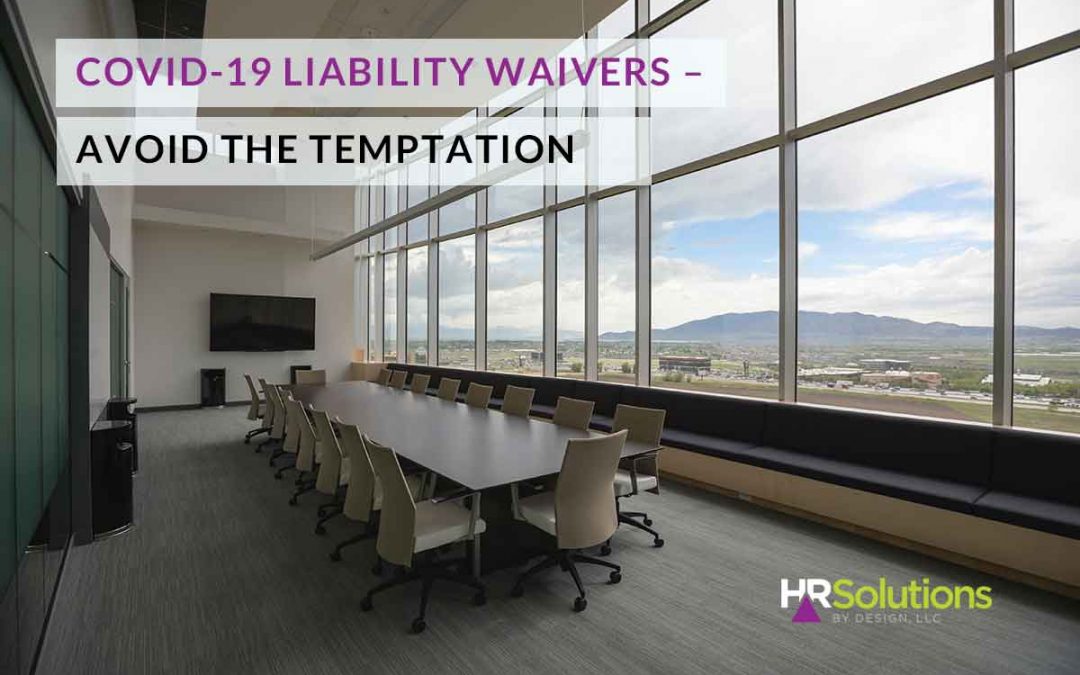As employers are reopening, they are contemplating policies to protect their employees, customers and business. One serious question many businesses are asking is “Should I ask all employees to sign a liability waiver in the event they contract COVID-19 in the workplace?”
The short answer to this question is a resounding NO! This is a disaster waiting to happen and may prove the old adage of “the cure is worse than the disease” to be right! (sorry, pun intended).
In addition to the fact that in most states employees cannot waive their rights to worker’s compensation, you also have the issue of today’s social media mob and the potential backlash from a single tweet or post. Consider the situation Nacho Daddy in Las Vegas, NV found itself in when it reopened and required employees, as a condition of employment, to sign waivers stating the company was not liable if they got sick at work. Once the requirement was made public through social media, the company found itself in full blown damage control and rescinded the requirement.
OSHA has released guidance (see our post earlier this week here) noting they are following their “reasonableness standard” for investigating and recording illnesses related to COVID-19, but that doesn’t necessarily answer the question of worker’s compensation. And, the state of California has, through an executive order signed by Governor Gavin, presumed that employees in California who contract COVID-19 got it at work and are treating it as a workplace illness covered by Worker’s Compensation.
In addition to these little wrinkles, asking employees to sign a liability waiver put your company at risk of other local, state or federal requirements, including:
1. OSHA
According to Erin McLaughlin, labor and employment attorney at Pittsburgh-based law firm Buchanan Ingersoll & Rooney, if an employee views the waiver as an assumption that the workplace is unsafe, it could be regarded as an attempt by an employer to avoid the statutory obligations under OSHA. “So, depending on what’s in the individual write-up,” McLaughlin says, “Best case scenario, the waiver would be unenforceable, and worst-case scenario, it’s actually a violation of the law to have the waiver.”
2. Wrongful Termination
What if an employee refuses to sign a waiver? If it’s a condition of employment and results in termination you could put your business at risk for a worker’s compensation retaliation claim, or a wrongful termination claim. The damages of a retaliation claim could include front and back pay, compensatory damages and potentially punitive damages depending on the situation.
So, what can or should you do to protect your business?
- Continue to publish and communicate the guidelines from the CDC on how to stop the spread of COVID-19, including wearing face coverings, social distancing, and good hygiene.
- Require employees to self-monitor symptoms and stay home if they are sick.
- Implement specific policies and practices in the workplace to disinfect and sanitize the workplace.
- Get employees actively involved in helping maintain a safe and healthful workplace.
- If you need help, contact us, it’s what we do every day.


